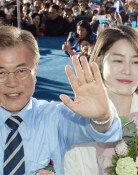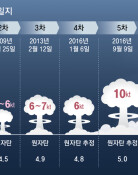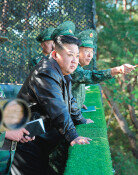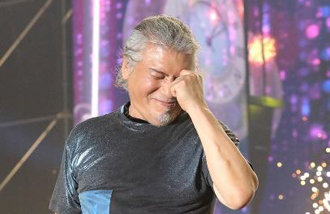Sino-US summit and NK`s nuclear program
Sino-US summit and NK`s nuclear program
Posted January. 13, 2011 11:03,
The Jan. 19 summit between U.S. President Barack Obama and Chinese President Hu Jintao can be compared to the historic 1979 talks between then U.S. President Jimmy Carter and Chinese Vice Premier Deng Xiaoping. If the 1979 talks set the direction of Sino-U.S. ties after the establishment of bilateral relations, the Jan. 19 summit will likely confirm mutual cooperation and competition in global strategies between the worlds two superpowers. Just as Carter and Deng discussed the Korean Peninsula 32 years ago, Obama and Hu have North Korea as a major agenda item in their talks next week.
In a meeting with Hu Tuesday partly to prepare for the summit, U.S. Defense Secretary Robert Gates urged the North to declare a moratorium on its missile and nuclear development. Afterwards, Gates said intercontinental ballistic missiles that Pyongyang is expected to develop within five years along with its nuclear weapons will likely pose a direct threat to U.S. national security. The U.S. State Department chimed in with his comment, saying Gates request is something the North should implement. Beijing, however, said nothing about this.
As standing committee members of the U.N. Security Council, allies to both Koreas, and parties to the six-way nuclear talks, the U.S. and China are responsible for maintaining peace and stability on the peninsula. Obama and Hu are hoped to achieve concrete results by holding serious talks on the peninsula as leaders of the worlds two superpowers.
The two leaders must send a strong warning to the North on its nuclear development and armed provocations against South Korea, while presenting concrete actions for Pyongyang to take. Doing so will advance not only stability on the peninsula but also peace in Northeast Asia and a nuclear-free world. It will also be in the interests of both Washington and Beijing.
If Obama and Hu fail to produce one voice that substantially affects the North, Pyongyang might believe nothing can stop it. Then the Stalinist nation will become a militant country that resorts to further brinkmanship, posing not only nuclear and missile threats to the South but also disrupting world peace.
If Washington and Beijing fail to put the brakes on Pyongyangs nuclear development, Seoul and Tokyo will have no choice but to take extraordinary self-defense measures. Such a situation could also fuel a nuclear arms race in Asia. To avoid glossing over Pyongyangs nuclear ambition and thus exposing the world to a more dangerous nuclear threat, Obama and Hu should show resolute cooperation on the Norths nuclear program at their upcoming summit.
Headline News
- S. Korea, US agree on defense const sharing-plan US presidential election
- Medical school quota discussions spark confusion 40 days before exam
- Zuckerberg surpasses Bezos to become world’s second richest person
- Son excluded from October national team due to thigh injury
- Ruing and opposition leaders launch campaigns ahead of by-election







